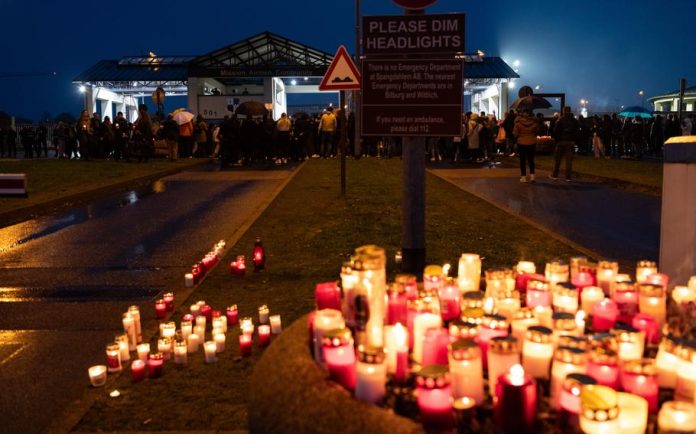In early October, a court martial found Private First Class Grant Harrison not guilty after the fatal attack in the German city of Wittlich on Michael Ovsjannikov, a highly skilled martial arts athlete, according to German media. The family of the victim still expects the fight to continue.
Ovsjannikov was stabbed to death on 19 August with four stab wounds, the most serious in the back and side of the abdomen. The attacker was further detained. As a result, his victim’s family expected the attacker, who was taken into custody and charged, to be convicted. But things turned out differently. Harrison, 26, first confessed to the stabbing during his initial law enforcement interviews, as confirmed by defence and government attorneys. He faced a maximum sentence of life in prison.
However, the confession of the soldier stationed at Spangdahlem Air Base, given to German and American interrogators, was disregarded at the military trial at the airfield. The judge felt it was not voluntary. That is why the jury, which eventually acquitted the defendant, never heard it. On the other side, the Trier prosecutor’s office, though, in response to SWR’s question as to whether there had been pressure on the defendant, stated that there had been no pressure. Thus, the prosecutor’s office only has in its possession materials that German investigators created before the case was handed over to US law enforcement authorities in accordance with the NATO Force Charter.
Nothing to be done: Senior prosecutor
During the trial, the defendant did not speak a word. His lawyer accused a soldier friend who was with him at the fair. And ultimately the jury acquitted the young man due to lack of evidence. Apart from the testimony of witnesses, who were mostly drunk at the time of the crime, and blood spatters on the soldier’s boots, the prosecutor’s office was unable to provide anything. In accordance with the NATO Force Charter, it has already handed over the investigation and prosecution to the US military.
A new transfer of the case to the German prosecutor’s office after a US military court judgement is not possible under the NATO Force Charter, Trier’s senior prosecutor Peter Fritzen said adding the soldier was a free man again, with nothing to be done about it.
The accused’s confession was also recorded on video. Further US officials were able to interrogate the man, but the Trier Prosecutor’s Office does not know exactly how this interrogation took place. It was not recorded in the German protocol. German officials later handed over all documents and evidence to their US counterparts. The prosecutor’s office said that the accused was not very drunk at the time of the interrogation; a blood test showed 0.2 ppm.
Florian Warweg, a German journalist and writer, also editor of the blog NachDenkSeiten, said in his account on X:
“A special clause” in the NATO Forces Charter for crimes committed by US soldiers on German soil: Recently, a soldier who killed a German citizen at a fair in Wittlich was acquitted by a US military court despite his confession. This was only possible because, according to SWRAktuellRP, among other things, there is a special clause in the NATO Force Charter for the Federal Republic of Germany that regulates how to deal with offences committed by US soldiers. Against this background I asked the BPK, and also wished to know how such cases for foreign soldiers are regulated in the new tactical headquarters NATO (CTF BALTIC) in Rostock, because the NATO statute of forces in the area of the former DDR is invalid.
There is a prohibition in German law against double punishment based on the principle of “not twice for the same case.” This principle that no one can be charged twice for the same offence is also enshrined in US law as “double punishment.” It is therefore unlikely that the US soldier will be re-charged, as under US law the prosecutor cannot appeal.
On 19 October, hundreds of people protested the acquittal of the US pilot, expressing disbelief, anger and frustration at what many called a lack of justice and accountability for the athlete’s death. Ovsjannikov’s family remains willing to continue fighting for justice with their lawyers, but it remains to be seen whether the new information from the German authorities will open up further possibilities.
